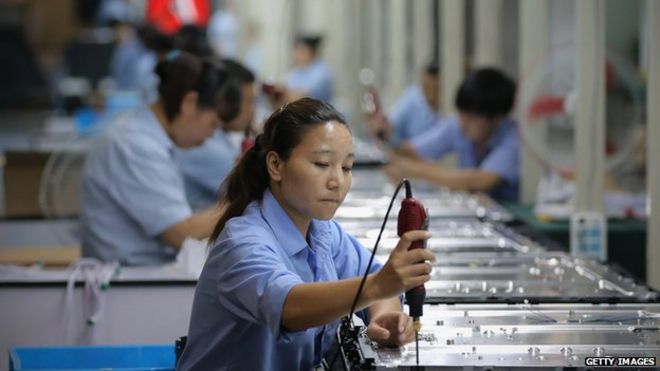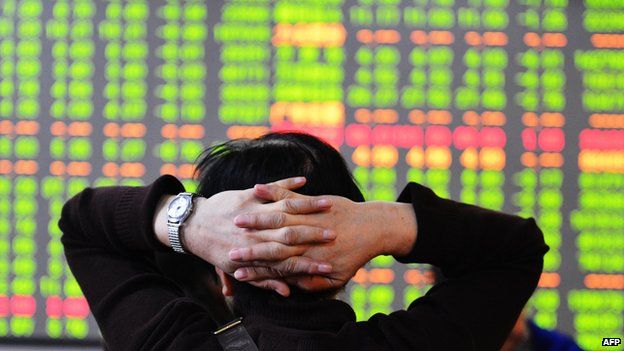Growth in the world's second largest economy, China, beat expectations in the second quarter, but it was still the weakest showing since the global financial crisis.
 China's growth in the second quarter was steady, staying at the same level as the previous three months
China's growth in the second quarter was steady, staying at the same level as the previous three months
The economy grew 7% from a year ago - matching growth in the first three months of the year, which was the lowest since 2009 when it fell to 6.6%.
A weaker property market and factory production have hampered growth.
But, Beijing has rolled out a series of stimulus measures amid the slowdown.
The central bank cut interest rates for the fourth time since November last month to boost economic activity.
Economists are, however, continuing to call for more easing despite the better-than-expected numbers as volatility in the stock markets has sparked concerns offinancial turmoil in the country.
Growth was expected to dip below the 7% mark and come in at 6.9% for the April to June quarter.

Analysis - John Sudworth, BBC News, Shanghai correspondent
Sure, the data may well be massaged, manipulated and to some extent made up.
And critics of the whole concept will argue that attempting to sum up three months' worth of Chinese economic growth in a single number is as futile as trying to sum up the political events of the past three months in a single word.
But if seen as simply the best estimate that China feels comfortable publishing then it is useful, both in terms of the trend and in terms of what it may tell us about government thinking.
The 7% figure is certainly confirmation that growth remains flat at best, unchanged since the first quarter, but coming in slightly above what many had been expecting, could it be a little more rose-tinted than usual?
A point or two added as perhaps another stock-market boosting measure?
Of course, it's too early to tell if those market woes are yet impacting the wider economy. Except, analysts suggest, in one small but surprising way; second quarter growth may actually have been boosted slightly by the huge brokerage fees earned on all that frantic, panicked trading.

Frederic Neumann, co-head of Asian economic research at HSBC expects more fiscal and monetary easing in the coming months in order for China to achieve sustainable growth.
"Stimulus measures rolled out over the past nine months are beginning to show some traction. But work remains to be done," he told the BBC. "The sell-off in the stock market will likely necessitate further easing in the coming months."
The mainland's benchmark index, the Shanghai Composite, had lost almost a third of its value in the three weeks from mid-June.
The positive growth figures failed to excite investors with the index down 2.4% to 3,830.49 points, while Hong Kong's Hang Seng index was lower by 0.5% to 24,995.95.

On a quarterly basis, the economy expanded 1.7% from April to June, compared to the 1.4% revised figure in the first quarter.
The government has also had to respond to suggestions that the better data may have been "inflated".
The National Bureau of Statistics said on Wednesday that the data reflecting the positive changes in the economy was "hard won", and accurate.
Julian Evans-Pritchard, China economist at Capital Economics said that while actual growth is "almost certainly" a percentage point or two slower than the official figures show, it does point to signs of a stabilising economy.
"More broadly, with the drag from the structural slowdown in property and heavy industry now easing, we think that growth is on track to slow only gradually over the course of the next few years," he said in a note.
Industrial production and retail sales in June were all above forecasts, while fixed-asset investment, a major driver of the economy, also beat expectations in the period.
No comments:
Post a Comment